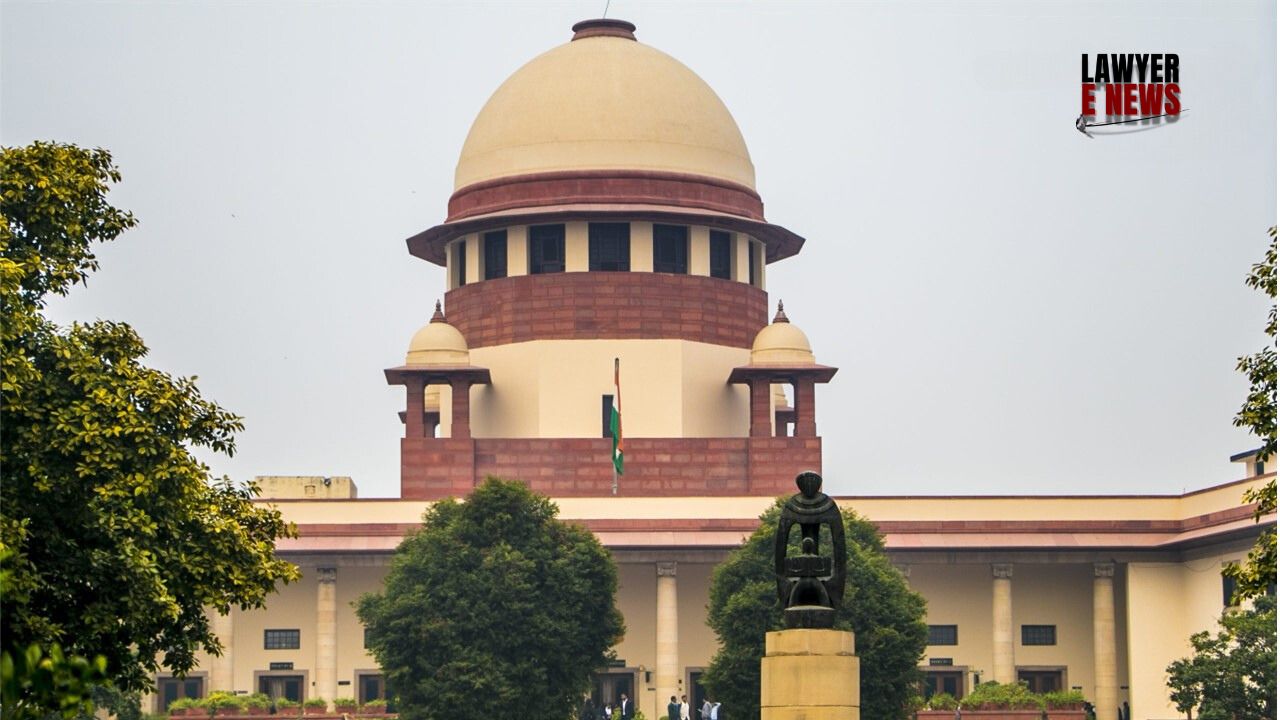-
by Admin
15 February 2026 2:36 AM



Supreme Court of India delivered a significant judgment reaffirming the standards for establishing medical negligence. The Court held that the mere worsening of a patient’s condition after surgery does not automatically constitute actionable negligence. This ruling emphasized that negligence claims require clear evidence of a breach of duty or lack of due skill. The Court reversed the National Consumer Disputes Redressal Commission’s (NCDRC) order awarding compensation for alleged medical negligence in an eye surgery, restoring the State Commission's original dismissal of the complaint.
The case involved a complaint by the father of a minor, Jaswinder Singh, who had undergone surgery for congenital ptosis (drooping eyelid) at the Post Graduate Institute of Medical Education & Research (PGI), Chandigarh, under the care of Dr. Neeraj Sud. The surgery allegedly led to a deterioration in the child’s vision, prompting a claim of Rs. 15 lakh in compensation for medical negligence. The State Commission initially dismissed the complaint, finding no evidence of negligence. However, the NCDRC reversed this decision, awarding Rs. 3 lakh in compensation and Rs. 50,000 in costs, concluding that the doctor’s care was inadequate. Dr. Neeraj Sud and PGI appealed the NCDRC ruling to the Supreme Court.
The Supreme Court reiterated the three essential components for establishing medical negligence: duty of care, breach of duty, and consequential harm. Citing Bolam v. Friern Hospital Management Committee and Jacob Mathews v. State of Punjab, the Court noted that a doctor is not liable for negligence if they act in accordance with accepted medical practices within their field.
Justice Pankaj Mithal, writing for the bench, stated: “A medical professional may be held liable for negligence only when he is not possessed with the requisite qualification or skill or when he fails to exercise reasonable skill which he possesses in giving the treatment.”
The Bolam Test, which holds that a doctor is not negligent if their actions conform to a responsible body of medical opinion, was applied. The Court found that Dr. Sud’s conduct aligned with accepted medical norms, negating any presumption of negligence.
The Court emphasized that actionable negligence cannot be inferred solely from an unfavorable outcome. The complainants, relying on medical records that showed the child’s vision had worsened, failed to produce any expert testimony to demonstrate that Dr. Sud deviated from standard medical practices. The Court highlighted that the absence of expert evidence weakens claims of medical negligence.
The Court observed, “Simply because the patient has not responded favorably to the surgery or that the surgery has failed, the doctor cannot be held liable for medical negligence. The doctrine of Res Ipsa Loquitur does not apply here, as there was no evidence of the doctor failing to exercise due skill or care.”
The Supreme Court criticized the NCDRC for substituting its own judgment for that of the State Commission without adequate evidence. The NCDRC had based its decision solely on the fact that the patient’s condition deteriorated post-surgery, which the Supreme Court found insufficient to establish negligence. The Court underscored that patient dissatisfaction or an unsatisfactory outcome alone cannot justify claims of negligence.
Justice Mithal noted, “Deterioration of the patient’s condition post-surgery does not necessarily indicate negligence or carelessness on the part of the doctor, particularly in the absence of evidence proving a lack of due skill or breach of duty.”
The Court reiterated that a doctor cannot be held liable for every medical error or adverse outcome. Liability arises only if there is clear evidence of deviation from established medical norms or a lack of necessary skill. It further noted that complexities and complications in surgeries are not unusual and should not be construed as negligence without substantial proof.
The Supreme Court set aside the NCDRC’s order awarding compensation to the complainants, restoring the original judgment of the State Commission that found no evidence of negligence by Dr. Neeraj Sud or PGI. The Court dismissed the complainants’ appeal seeking further relief, as they failed to prove actionable negligence on the doctor’s part.
The Court held: “The NCDRC ought not to have interfered with the findings of the State Commission, which were based on a thorough examination of evidence. Since the complainants have not substantiated their claim of negligence, no compensation is warranted.”
Key Takeaways and Legal Implications:
This judgment reinforces the Bolam Test as the primary standard for evaluating medical negligence, underscoring that a doctor following established medical practices cannot be held liable simply due to an unfavorable outcome.
The Court emphasized that allegations of medical negligence must be supported by expert testimony, particularly when complex medical procedures are involved. The absence of expert evidence weakened the complainants’ case and served as a reminder of the need for concrete proof in negligence claims.
Limitations of Consumer Forums in Medical Negligence Cases: By setting aside the NCDRC’s judgment, the Supreme Court clarified that consumer forums must exercise caution and avoid imposing liability based on patient dissatisfaction alone.
This judgment provides important clarity on the standards for medical negligence in India. It underscores that doctors cannot be held liable merely because a procedure does not yield the desired results, especially in the absence of evidence proving negligence. The Supreme Court has reaffirmed that adverse outcomes alone do not equate to negligence, ensuring that medical professionals are not unjustly penalized for inherent risks associated with complex medical procedures.
Date of Decision: October 25, 2024
Neeraj Sud and Anr. v. Jaswinder Singh (Minor) and Anr
